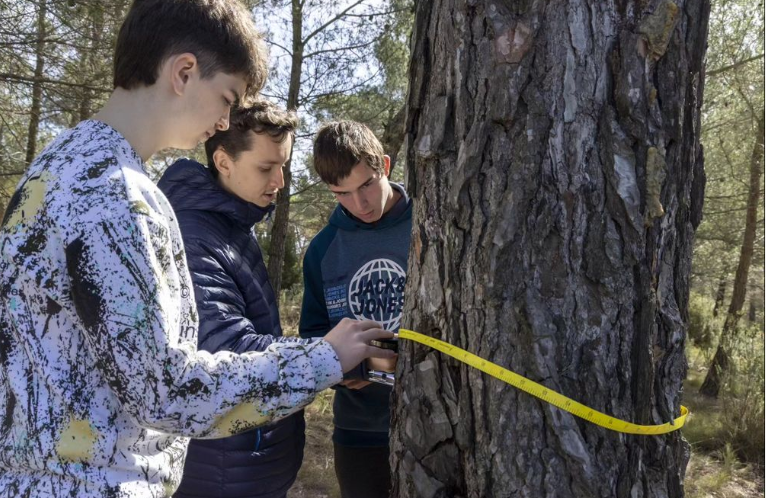ICTA-UAB teaches the course Mad about environment 2025
ICTA-UAB participates for the sixth year in a row in the program Mad about Science of the Catalunya-La Pedrera Foundation. This year, the course is called Mad about the Environment in order to adjust the title more precisely to the contents that will be addressed throughout the year.

Are you interested in knowing how the world around us behaves? How does climate change affect us? Does what we breathe change if we are in the city vs the mountains? Would you like to identify if the forests you walk in are healthy? Have you ever wondered if we eat in a sustainable way? Would you like to know the biodiversity that surrounds us?
For those of you who are interested in these questions, the Institute of Environmental Science and Technology of the Universitat Autònoma de Barcelona (ICTA-UAB) will offer the Mad about Environment course. Those interested can register until 18 October at 23:59h.
The program taught by ICTA-UAB brings a group of young people closer to the great challenges that the Earth will have to face during the next century. Once again, a group of 24 first-year A-Level students in Catalonia with scientific vocation and talent will be able to learn about the multidisciplinary environment offered by environmental sciences and sustainability to solve problems related to the environment, sustainability and environmental protection, climate change, green economy, circular economy, socio-ecological systems in globalisation, marine and environmental biogeosciences, biodiversity, waste and others.
The main objective of this course is to foster scientific vocations and promote knowledge and education of excellence among young people in Catalonia.
The program will take place from January to October 2025. During 13 theoretical-practical sessions that will be taught over different Saturdays, students will find out closely about research in major areas applied in environmental science and technology such as sustainability, climate change, resource use, recycling, biodiversity, environmental cooperation and behaviour and ecology, among others. In addition, they will be able to see processes such as photosynthesis, learn about the bioindicative role of macroinvertebrates, shore vegetation and aquatic mammals, how an urban vegetable garden grows, composting organic matter, and explore the role of local communities in the study of climate change.
They will work alongside leading researchers in their field to experience what science is like in an international research center. There will also be field trips and visits to research facilities. This will allow them to gain practical experience in the latest cutting-edge methodologies and better position themselves for a possible career in their chosen science of tech field.
This year the Mad about Science program celebrates its 13th anniversary and offers 15 different courses on different scientific disciplines ranging from supercomputing, nutrition, economics, mathematics and biochemistry.